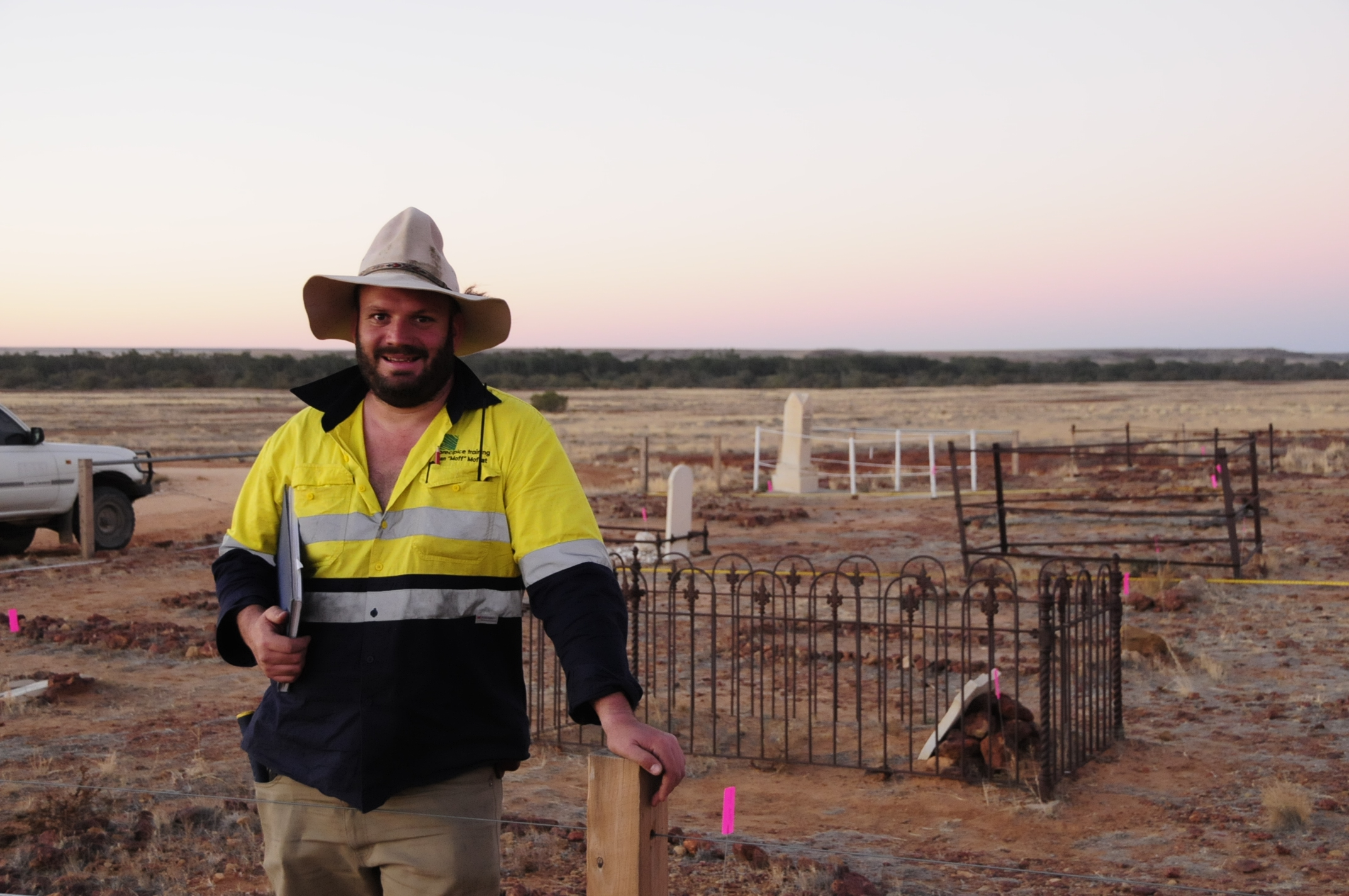
We sat down to talk with Dr Ian Moffat, Senior Research Fellow in Archaeological Science, about his work mapping unmarked graves in pioneer cemeteries, and studying how climate change affected early human existence.
What made you decide to work in the research field?
I was a curious kid who loved travel, reading and being outside, so after studying geology as an undergraduate, a research career seemed like a great fit.
What is your current research about?
I’m studying the climate records contained within sediments found in archaeological caves housing the earliest evidence of human evolution. This “dirt” often gets ignored but if we map how it is distributed under the surface and measure its chemical composition, it can provide lots of information about what the environment was like when it was laid down. We know that our ancestors faced significant changes in climate over the past few million years, but it has been difficult to directly assess the impact because good climate records are rarely preserved in archaeological sites. I hope my research can change that.
How will it benefit the wider community?
Humans will have to adapt to significant climate change in the future, so my research can help us to look to how our ancestors dealt with this issue. It could provide a roadmap for what might and might not work. Also, studying human evolution is a great way to get people interested in science, so hopefully my work will inspire someone else’s interest in archaeology, geology, chemistry or physics.
What has been your proudest moment as a researcher?
I’ve done a lot of collaborative work with community groups to map unmarked graves, particularly in historic cemeteries. Graves are a tangible record of a history but, over time, many headstones and maps get lost, so we can lose important links to the past. I’ve been very proud to make cutting edge science available to help communities find graves and answer questions about their local heritage.
What has been your most challenging moment as a researcher?
Every field researcher has endured their share of stomach bugs, weeks without showers and equipment failures, but my biggest challenging was to sing an Australian song for local villagers on the Mongolian steppe. Their applause for my rendition of “Waltzing Matilda” was enthusiastic, but probably only because the awful noise coming out of my mouth had stopped.
What does a normal day look like for you?
I’m not sure I know what a normal day looks like. I spend a third of my time doing fieldwork all over the world, another third analysing results in the lab and a third in the office writing results. I absolutely love this variety rather than doing the same thing day after day.
If there is one piece of advice you could impart on future researchers and university students, what would it be?
Work as hard as you can. I’ve often worked all night, missed important events or survived on nothing other than ramen, but it’s worth it to work in a field that I love.

